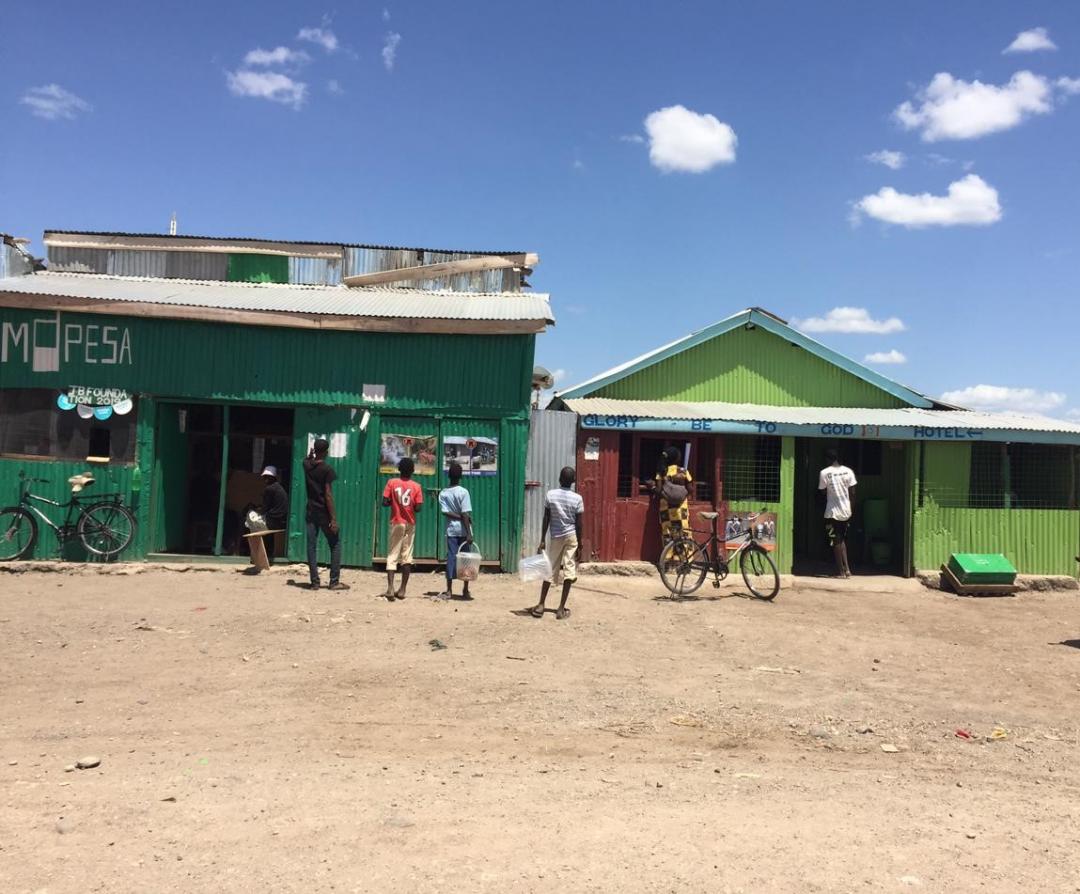How do you market improved cookstoves among host and refugee communities?
SNV and 17Triggers recently published a report on the research, development, and implementation of a behaviour change communication (BCC) campaign on improved cooking in Kakuma refugee camp as part of the EnDev Market Based Energy Access project II.
Since 2017, the EnDev Market Based Energy Access project (MBEA) has been supporting the private sector to enter the market in Kakuma refugee camp in Northern Kenya and sell solar products and improved cookstoves to the host and refugee communities.
A variety of stoves are now available in the local markets, both locally produced artisanal low-tier stoves and industrially manufactured high tier stoves in different sizes. These stoves enable people to move away from cooking on open fires and allow them to save fuel, save time and reduce their exposure to smoke.
An ongoing challenge was to increase demand for the stoves and help residents see the benefit of – and invest in – improved cookstoves, when the commonly used alternative is a free, three-stone open fire.
SNV developed a behaviour change campaign with the support of behavioural change experts from consulting firm 17Triggers. The campaign was informed by in-depth formative research and creative, iterative testing with households, eateries, community leaders and humanitarian agencies, guided by the 17Triggers team and executed by SNV’s team in Kakuma in early 2021. The key research findings informed the development of the BCC campaign strategy, tools and channels, which is being implemented since June 2021.
During the first 7 months of the campaign, MBEA partner companies reported an average of 725 stove sales a month. This is a significant 2.5x increase compared to the average of 291 stoves a month in the 5 months prior to the campaign. The majority of sales included locally made artisanal low-tier stoves, showing how affordability is still a key barrier to uptake besides increased awareness. Considering the overall high sales numbers, alongside increased availability of stoves due to ramped up local stove production by MBEA II partner companies, the overall BCC campaign can be considered effective in terms of supporting suppliers to sell stoves and drive overall uptake.

The insights and learnings from both the research and the implementation are now available in a report developed by SNV and 17Triggers. The report presents the teams’ approach for formative research, their findings, the design of the BCC campaign, as well as experiences and learnings from the first 6 months of implementing the BCC campaign.
The following key insights and recommendations are shared in the report:
- Deploy an iterative approach to designing and implementing a BCC campaign: The realities on the ground continuously change – on the consumer side due to the transient nature of the camp and settlement, but also on the supply side with regards to available stoves and suppliers.
- The local implementing team plays a key role as the voice on the ground: It is key to have regular feedback rounds with the implementing team on what is working and what is not, what other activities can be tapped into, and which tools might not be worth investing resources on.
- Show, don’t just tell: Activities focused on demonstration and product engagement which showcase the functional benefits for each respective target audience are key to draw in the audience. These activities are, while costly and time intensive, most impactful.
- Private sector involvement is key: Enable the target audiences to directly move from awareness to direct sales
- There is no one-size-fits-all approach for reaching all communities: There is need for an even more localised approach targeting the various communities and areas throughout campaign implementation, to ensure all people are being reached with appropriate products.
- Continued need for flexible payment options for higher tier stoves: The available flexible payment options need to be clearly communicated and companies need to come up with additional suitable payment plans to address the affordability barrier.
Going forward, SNV will continue to implement most activities as part of the campaign in 2022, taking a more localised approach to reach the people that are not commonly in the market areas and have therefore been less exposed to the campaign messages. 17Triggers continues to help organisations to drive behaviour change using human-centered design. SNV, through the EnDev MBEA project, continues to work on bringing further cooking solutions with higher levels of efficiency, alternative fuels (electricity, pellets, briquettes) and appropriate payment models to the market. It will serve different customer segments to increase product choice and drive people to higher levels of access to cleaner cooking solutions.
To learn more, read the report ‘Behavioural change campaign: promoting improved cooking solutions in Kakuma refugee camp - Key research and implementation findings’.
Contact Karlijn Groen, Project Advisor Energy SNV - kgroen@snv.org